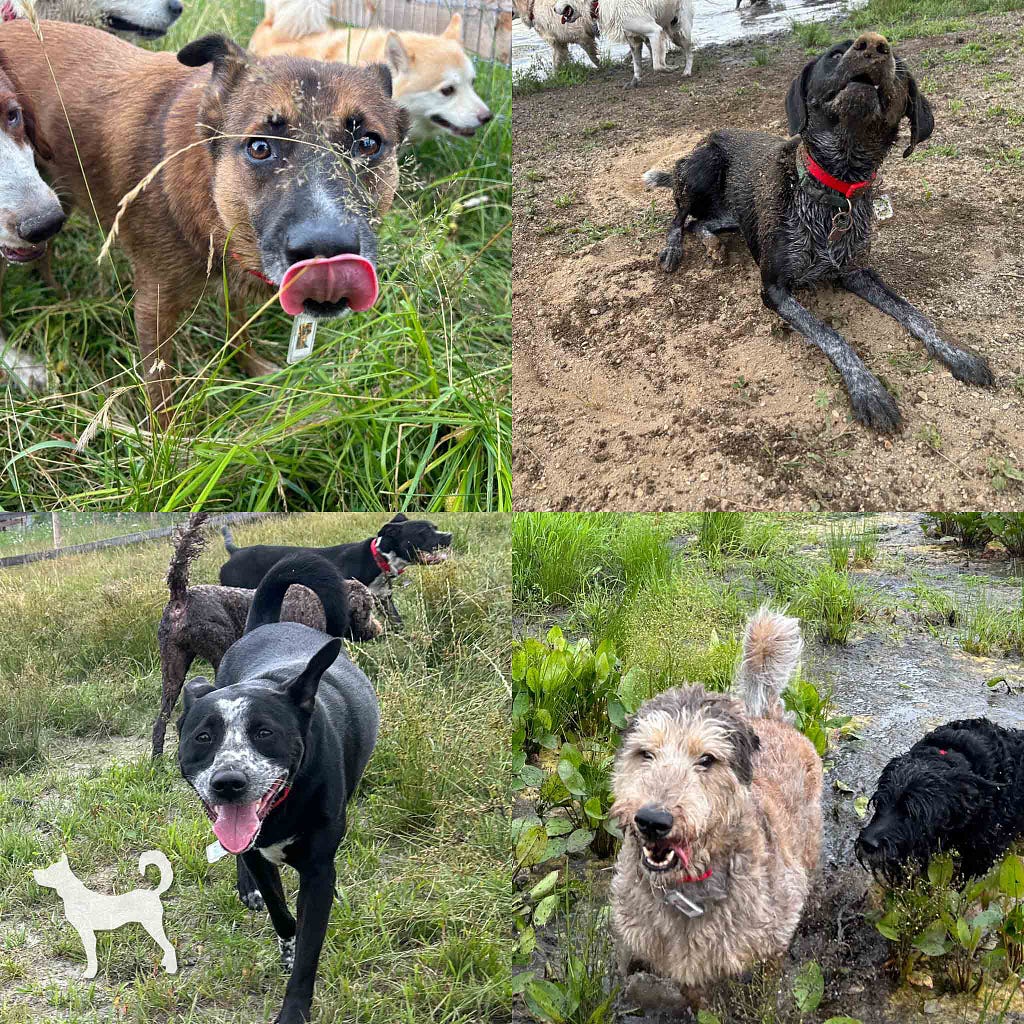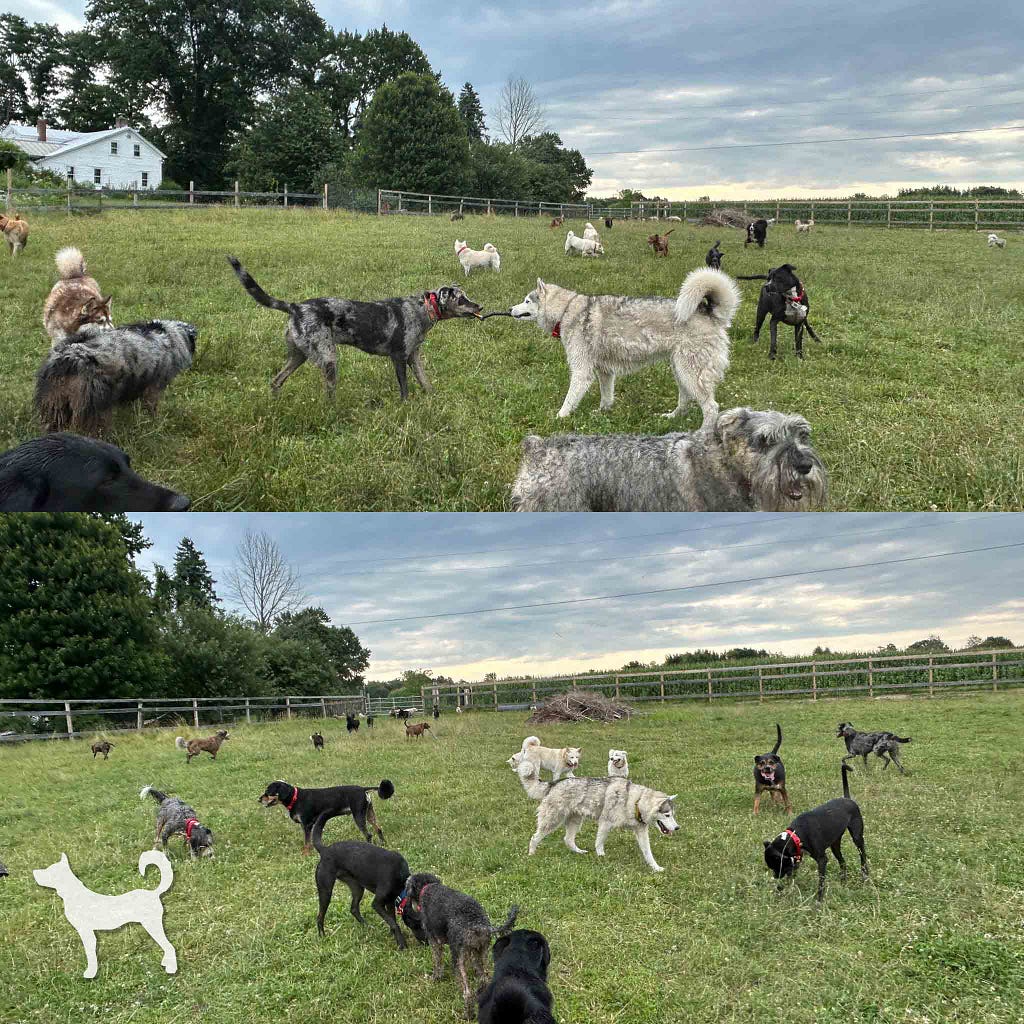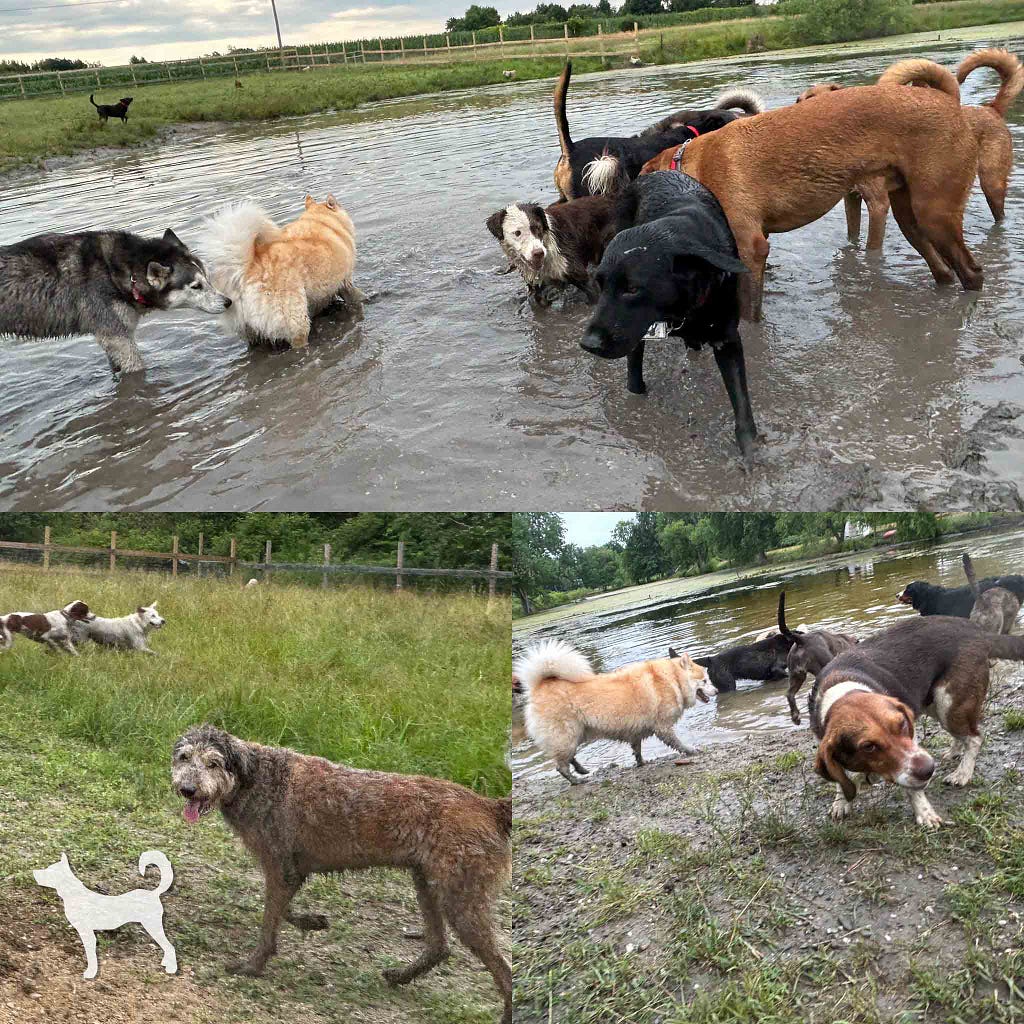No, they aren’t rising up in revolt. But they would like to walk around without a string on their necks on occasion.

Dog independence: no, not as in Animal Farm with the animals rising up and taking over, but being able to move about and explore, to engage in the natural behaviors of the species, to be off leash — that is the theme of this blog post published (and entirely and maybe a bit quickly written) today, July 4, 2024.
If the dogs did revolt and set up the Pawsome Republic, they damn sure would not celebrate the event with fireworks, I can guarantee you that.
The New York Times
Here on my humble Glencadia Review blog of things relating (maybe vaguely) to our dog business in Columbia County NY, I have a trend or policy or bad habit of responding to New York Times articles. The Times published an article on a mysterious respiratory disease in dogs. When I looked at the data carefully, I thought maybe, just suspected, that the conclusions in that NY Times article might be complete alarmist hogwash.
At the time, I was not 100% certain that confirmation bias and the nature of large datasetswas the “mystery” but as time has passed and the story has disappeared, I think it’s pretty clear that the emergency was much ado about nothing. You can find any trend you look for in a huge pile of cases. The Times should have been more careful and circumspect in their original reporting, or gone back to re-analyze their work later, or maybe corrected the original article… but at least I was able to get my two cents in here on the blog. Data behaves and has characteristics like any other phenomenon, and you can find whatever you look for if you ignore the data that tells the opposite story.
Next up in the Glencadia Review New York Times blog post history was a piece about pampering your pet at “luxury” dog boarding facilities. I could not at all, completely impossible, for me not to chime in on this one. The pampering was a delicious setup for me — or so I felt — when I realized that “luxury” dog boarding” means the dogs never get dirty or have any fun. That post — “Where’s the Mud?” — wrote itself practically.
Now, the Times has published an article that is 180 degrees from the luxury dog boarding piece, “Are We Loving Our Pets to Death?” On the occasion of Independence Day 2024, July 4th, I would like to say something about independence as it pertains to pets, particularly dogs, and what we do here at Glencadia. In this third post in the series, I agree with the thrust of the Times’ article and am inspired to continue the discussion they started.
FYI, there is another piece I should blog about next time, a piece about the science of pet ownership. Coming up soon, I’m sure! Stay tuned here!

Loving Pets to Death
The theme of the Loving Pets to Death article is that we are infantilizing our pets. The article compares the lives of free-ranging dogs, including street dogs, to the experiences of inside pets.
The street dog comparison was apt. I would have also noted that in many places in the world, and here in this part of the United States a few generations ago, there was some grey area between a pet and a street dog. There are people in, say, Central America or the Caribbean, that have a dog that never comes in the house but that has a name, is fed, and is sort of part of the family. However, no one really knows where the dog is 90% of the time. On the other hand, there might be a street dog that is fed by someone, who takes really no responsibility for the dog. The experience of these two dogs is pretty similar in that they roam around and get fed, but one is sort of a pet and the other is a street dog.
In my grandfather’s memoirs written in 1984, Irving Pflaum sometimes mentions a dog or a cat: a dog named Chucho in Cuba in 1961, a dog named Izza in Mallorca in 1936, a cat in Chicago in 1924 and another one in 1964… but he doesn’t seem to take the dogs or cats with him when he moves, and never mentions the dog again. My grandmother also wrote a memoir, but she never mentions any pets. Often, IN Irv’s manuscript the pets show up and make themselves at home — he never goes out and looks for or decides to acquire a dog or cat. He seemed to assume this was normal. His orientation to pet ownership was similar to the attitude in Tobago described in the Times article: cavalier, laid back, and lackadaisical.
This practice has terrible consequences for indigenous animals, of course. Young sloths that fall out of trees are often killed by dogs, native birds are driven to extinction by free-ranging, well-fed cats; this kind of “free” approach to living with pets is not at all good for wildlife. But as the Times pointed out, for the cat or dog him or herself, it can be a pretty awesome arrangement.

Let The Dogs Out
Here are Glencadia we have an environment built to allow dogs to be free — to interact socially, dig, chew sticks, swim, sniff, roll, and peel out. They are pretty much never on a leash. Intellectually and physically, the setting is vastly more intense and stimulating than living at home with a family of humans in many ways, if also maybe less cozy and comfortable.
More generally, a recurring motif in the Times article published June 22, 2024, on pet ownership is that we have cultural norms of pet ownership that may have diverged from the fundamentals of what makes a pet happy and healthy. This is something I think about a lot.
The dog leash is a matter of life and death because in a modern human environment, we have streets and cars. But as a dog, wouldn’t it be great not to have that string constraining your movements at all for at least a few weeks a year?
Often customers will explain that their dogs might sleep on the bed at home, and be a little taken aback by the simple cots we use here, for example. While there is nothing wrong with having a little dog on the bed (and maybe even a big one perhaps), there might also be something pretty beneficial about a dog sharing his or her space with other dogs and living in a pack, even with a simpler cot for a bed.
So, in short, I appreciated the Times article as a support for what we have been doing here at Glencadia — not necessarily conforming or changing to suit trends in pet care or styles of pet ownership but basing the way we work on what seems to make sense for dogs as social, pack animals.
We try not to even disturb the wild animals and plants more than necessary (except for geese) while accommodating dogs. I don’t want to manicure the place to look like a golf course — our fields and woods are all human-controlled environments, like pretty much the whole planet, but we try not to obliterate nature. And that too seems to work.
I think that will do it for today’s mediation on independence as it pertains to dogs. Happy July 4th everyone and we’ll see you on the romp.
